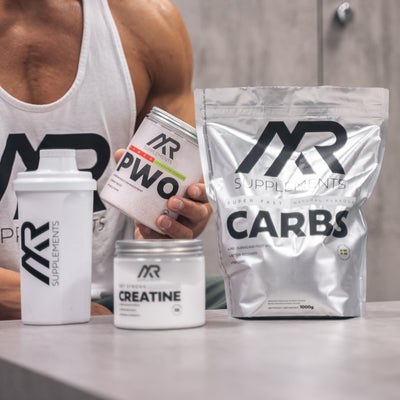-
Sun - Vitamin D
-
Sleep - Recovery
-
Diet - Get nutrition and recovery
-
Water - Fluid balance
-
Exercise - Strengthen the body
That's why we think it's important to talk about diet and nutrition as much as possible. To gain a good understanding and learn what's good for you and what you need to avoid.
Finding balance isn't something you can do in a couple of weeks. You have to learn about nutrition and calories as much as you have to change your relationship with food.
Food shouldn't be a reward or just a pleasure. See food as fuel, to give the body what it needs but also to eat good food in a delicious way.
Understand calories:
Calories are units of energy that our bodies use to function. Your daily calorie intake depends on several factors, including your age, gender, weight, height, and activity level. To calculate your specific needs, you can use an online calorie calculator that takes these factors into account. Otherwise, you can figure it out yourself using a formula that you can find here Calculate your calorie needs
Macronutrients: Proteins, Carbohydrates and Fats:
Macronutrients, often called "macros," are the main nutrients your body needs. They include protein, carbohydrates, and fat. A balanced ratio for good health might be 40% protein, 40% carbohydrates, and 20% fat. This ratio helps ensure you get enough energy while supporting muscle growth and recovery. Keep in mind that men and women need different amounts of fat. Women need to increase their fat intake and perhaps cut back on protein or carbs.
Recipe Suggestions for a Balanced Diet
Here are ingredients for four recipe suggestions for a day, which together provide about 2000 kcal. If you exclude the snack, you get about 1650 kcal.
-
Breakfast: Plain Pancakes (approx. 355 kcal)
- 5g Coconut Oil
- 20g High Quality Whey100
- 35g Blueberries
- 50g Oatmeal
-
Lunch: Spaghetti with minced meat sauce (approx. 643 kcal)
- 25g Yellow onion
- 65g Carrots
- 70g Wholemeal spaghetti, uncooked
- 225g Ground beef, 3-7% fat
- 240g Crushed tomatoes
- 100-200 ml Broth
- 1-2 Garlic cloves
- 1-2 tsp Dried oregano
-
Snack: Smoothie (approx. 356 kcal)
- 10g Chia seeds
- 35g Oatmeal
- 35g High Quality Whey100
- 155g Strawberries, frozen
-
Dinner: Tacobowl (approx. 644 kcal)
- 50g Tomato salsa
- 50g Whole grain rice, uncooked
- 75g Yellow onion
- 80g Corn, canned
- 80g Tomato
- 235g Ground beef, 3-7% fat
- ½-1 handful chopped coriander
- 1-2 Garlic cloves
- 1-2 tsp Taco seasoning mix
Sustainability in Nutrition
Having a good foundation in your diet and knowing exactly what and how much you're eating is key to sustainable health. By varying these recipes, you can keep your eating schedule both healthy and exciting.
Ingredients to Cut Down on for Better Health
It's important to remember that moderation is key, and that all foods can be part of a balanced diet if consumed properly. Here are some examples:
-
Saturated and Trans Fats :
- Foods high in saturated fat, such as red meat, butter, and some dairy products.
- Trans fats are often found in processed foods, margarine, some baked goods, and fast foods. These types of fats can increase your risk of heart disease.
-
Refined Sugar and High Glycemic Foods :
- Candy, soft drinks, and other sugary snacks are high in refined sugar.
- White breads, some types of cereals, and processed snacks can have a high glycemic index, which can lead to blood sugar swings and weight gain.
-
Fried Food :
- French fries, fried chicken, and other deep-fried foods are often high in fat and calories, and can contribute to weight gain and other health problems.
- French fries, fried chicken, and other deep-fried foods are often high in fat and calories, and can contribute to weight gain and other health problems.
-
Processed Meat Products :
- Sausage, bacon, and ham are examples of processed meats that can be high in sodium and preservatives.
- Sausage, bacon, and ham are examples of processed meats that can be high in sodium and preservatives.
-
Fast food :
- Often high in calories, fat, and sodium, and low in nutrients.
- Often high in calories, fat, and sodium, and low in nutrients.
-
Artificial Sweeteners and Additives :
- Some people are sensitive to artificial sweeteners and additives that can be found in diet products and processed foods.
- Some people are sensitive to artificial sweeteners and additives that can be found in diet products and processed foods.
-
Alcohol :
- High alcohol intake can lead to a range of health problems, including liver problems and an increased risk of certain types of cancer.
These can contribute to various health problems if consumed in large quantities.
Remember that balance and moderation are key. Every person is unique, so it's important to adjust your diet to your own needs and goals.
Train hard, enjoy good food and take care of your body!




